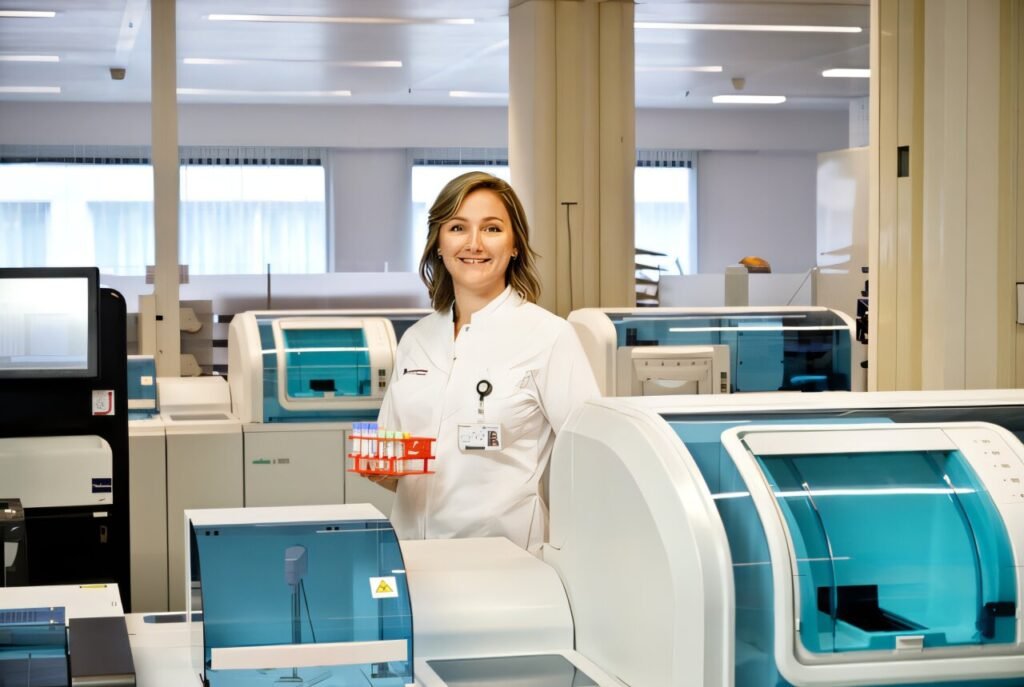In the realm of medical research, the quest for non-invasive monitoring methods is a constant pursuit. Traditional blood sampling, while effective, can be invasive and cumbersome for patients. However, a groundbreaking alternative may be on the horizon: measuring biomarkers in sweat and saliva.
Sophie Adelaars, a researcher at Eindhoven University of Technology, delved into this innovative approach in collaboration with Philips and the Catharina Hospital. The focus of her project was to develop a sensor capable of detecting biomarkers in sweat, offering a less invasive and more convenient method of monitoring patients’ health status and disease progression.
The potential of a sweat sensor is immense, as it can be worn by patients 24/7 to provide continuous and remote health monitoring. To collect sweat for analysis, Adelaars utilized pilocarpine, a substance that stimulates the sweat glands to produce more sweat locally. This method, although not entirely new, holds promise for revolutionizing medical monitoring practices.
In addition to sweat, Adelaars also explored the use of saliva as a source of biomarker information. Saliva, being easier to collect than blood, presents a viable alternative for monitoring health status. Despite some challenges such as oral health and food particles affecting measurements, Adelaars established protocols to ensure accurate results.
Furthermore, Adelaars investigated cognitive testing as a predictive tool for postoperative delirium, a serious complication that can arise after surgery. By utilizing tools like the BAMCOG test to assess cognitive function, healthcare providers can identify patients at higher risk of postoperative delirium and intervene accordingly.
One of Adelaars’ key findings focused on the analysis of urea and creatinine levels in sweat and saliva of patients with kidney failure. By comparing these biomarker concentrations before and after treatment, she discovered that they follow similar patterns to blood levels. This breakthrough suggests that sweat and saliva measurements could be clinically relevant for monitoring kidney function.
Looking ahead, Adelaars envisions a future where wearable devices equipped with sensors for sweat and saliva analysis could revolutionize remote patient care. With the aging population and increasing pressure on healthcare systems, noninvasive monitoring methods like sweat and saliva testing could offer a more sustainable and efficient approach to healthcare.
While there is still much research and development needed to fully realize the potential of sweat and saliva monitoring, Adelaars remains optimistic about the future of this technology. With advancements in wearable devices and remote monitoring capabilities, the integration of sweat and saliva testing into healthcare pathways could pave the way for a more patient-centric and future-proof healthcare system.
In conclusion, the exploration of sweat and saliva as alternative monitoring methods represents a significant step towards personalized and noninvasive healthcare. Adelaars’ research opens up new possibilities for patient monitoring and disease management, offering a glimpse into a future where healthcare is more accessible, efficient, and patient-friendly.


